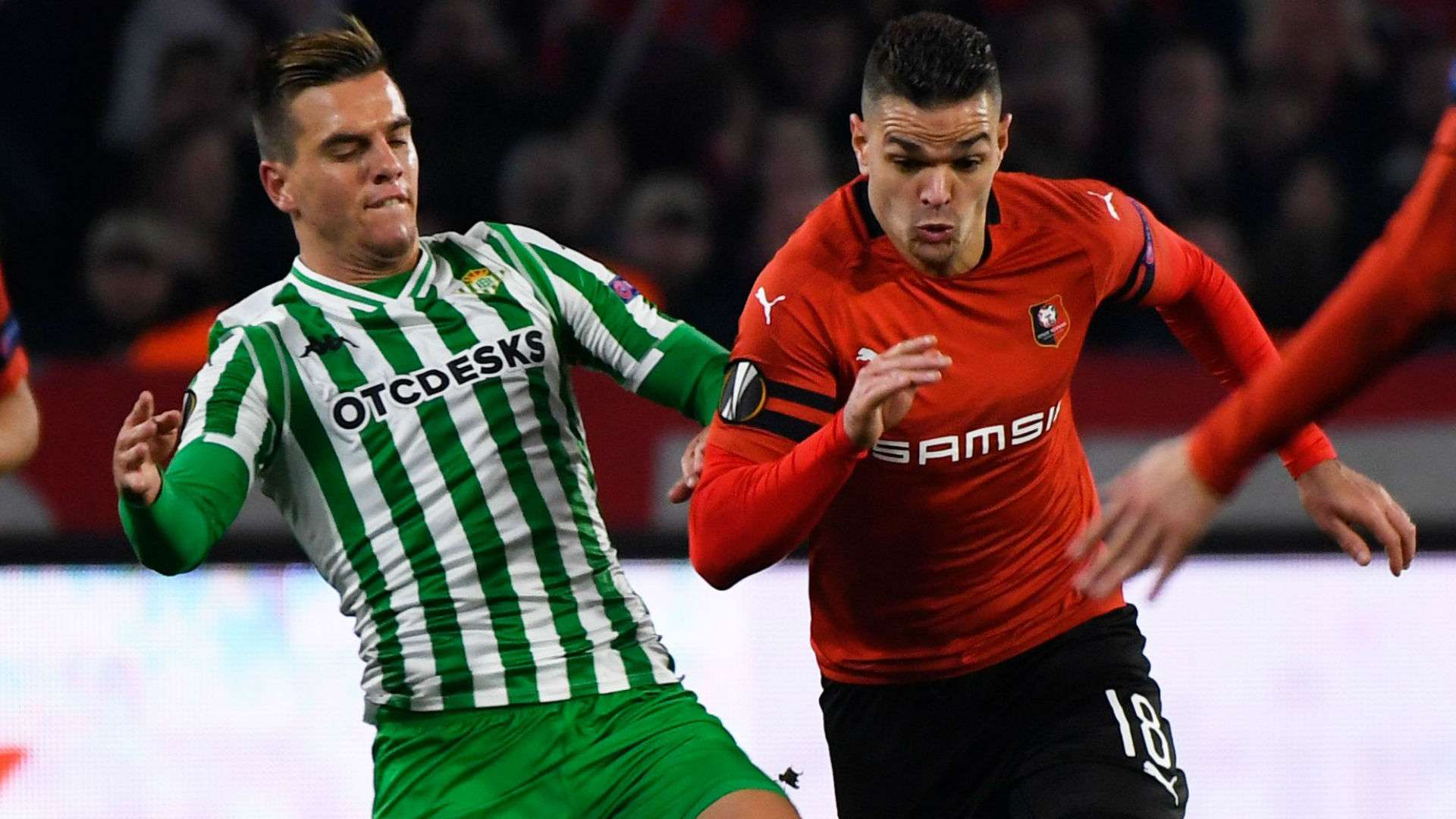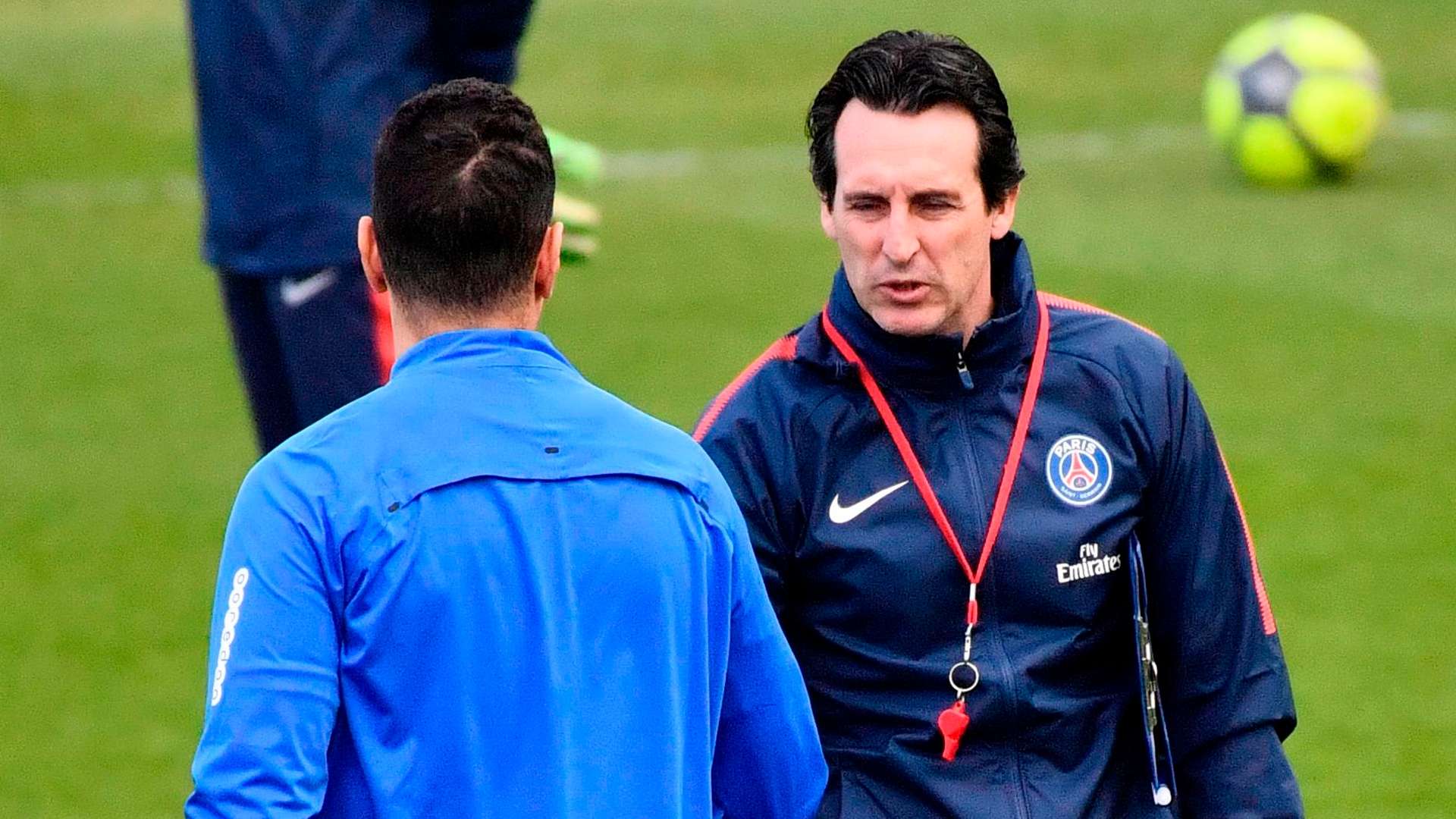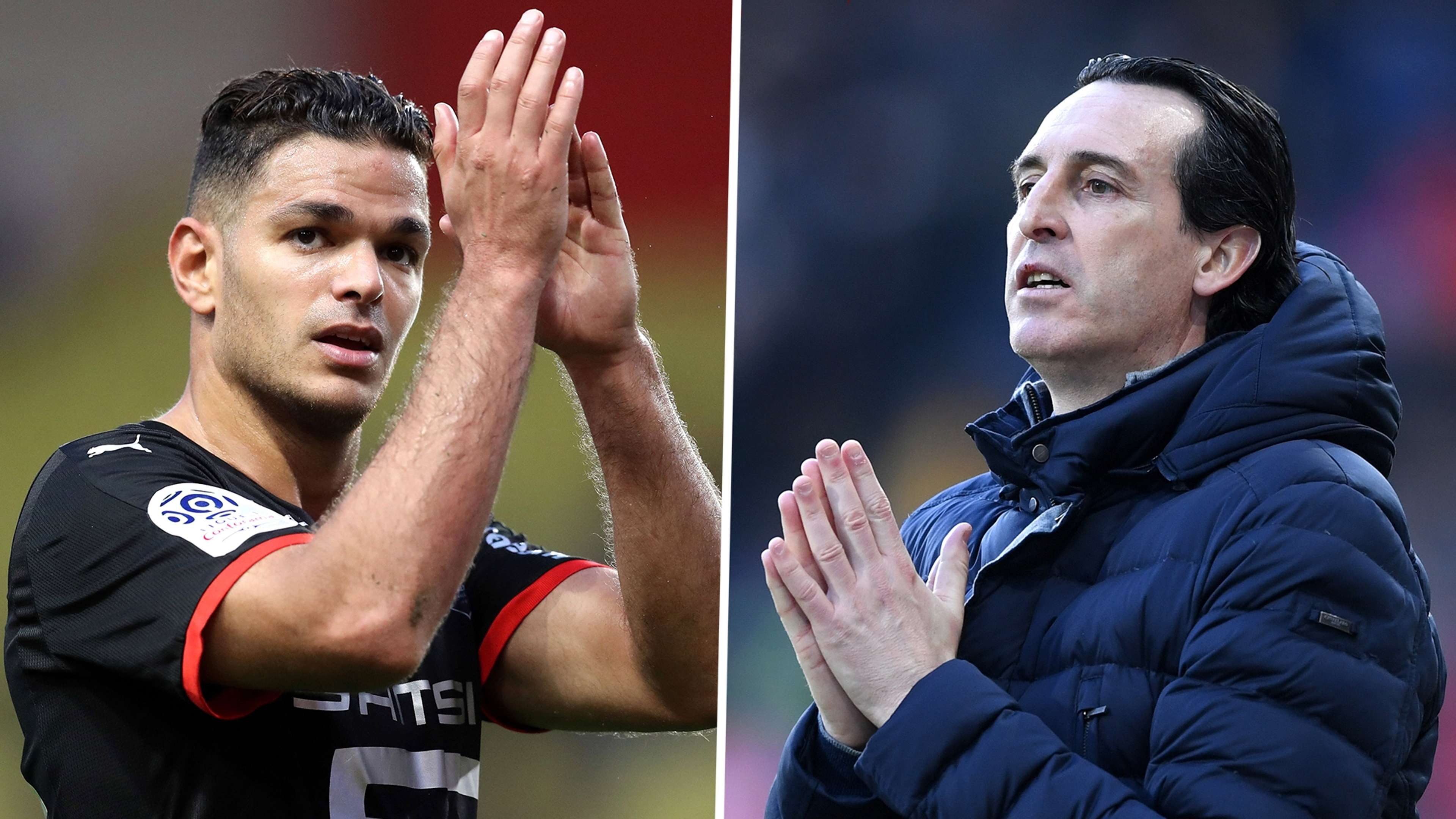When it is finally time for Hatem Ben Arfa to hang up his boots, he may look back at his career with a sense of regret.
Even if the gifted attacking midfielder does not, then fans certainly should, for his is a tale of unfulfilled potential.
He will celebrate his 32nd birthday playing for Rennes against Arsenal in the Europa League, having made fewer than 360 first-team appearances since making his debut for Lyon in August 2004, a rate of roughly 24 matches in all competitions each season.
Indeed, before signing for the Breton side in August, he had gone over a year without making a first-team appearance, having been frozen out at Paris Saint-Germain under Unai Emery – a coach he will cross swords with once again twice in the next seven days.
The Spaniard may be the bad guy in the eyes of the player. However, his biggest enemy has not been vindictive coaches, bad luck or repeated serious injury, but himself.
Next Match
The Paris-born attacker quickly gained a reputation as a prodigious talent as a youngster, though he would also quickly attain notoriety as French football’s enfant terrible.
During his formative years at OL, there was a reported rift with fellow up-and-comer Karim Benzema, while his relations with the squad were further soured after a clash with Sebastien Squillaci on the training ground.
His personal baggage proved too much for Lyon yet, in 2008, Marseille were willing to gamble on the fiery attacker, by now a France international whose ability to wow fans with his technical skills was deemed to be worth the risk.
OM were partially paid off, though a combination of inconsistent form and more high-profile fallings out punctuated his time at Stade Velodrome – the most infamous of which occurred in his first season, when he refused to come on during a 4-2 loss against Paris Saint-Germain having been named as a substitute.
 Getty
Getty
As would so often be the case during his career, he left in acrimonious circumstances, training alone in Paris while waiting for a successful bid for his services to arrive.
That arrived from Newcastle, where he thrilled fans at St James’ Park with his thrilling dribbling and habit of scoring brilliant goals – most notably stunning individual efforts against Blackburn and Bolton.
A fallout over his physical condition with Alan Pardew at the start of the 2014-15 campaign saw him sent out on loan to Hull City on loan, where his attitude again became an issue.
“I'm disappointed more than anything,” erstwhile Tigers boss Steve Bruce told BBC Radio Humberside . “His views of the game are different to mine. At any club you need to have a certain work ethic to get in the team. That's the frustrating thing.
“I hope Hatem takes in what I've had to say to him because his talent is there for all to see. But talent without hard work means you won't live up to your potential.”
With Newcastle unwilling to take him back when Hull terminated the loan in January, he moved to Nice, where he was expected to finish the season.
However, FIFA deemed a Newcastle reserve fixture, in which he had played a handful of minutes, was a competitive match, meaning Ben Arfa was blocked from turning out for the Ligue 1 club.
After six wasted months, he was finally able to join Nice.
“It’s a gamble for us and for him. He is not expected to lead us as a messiah but as an element that will integrate into our squad,” president Jean-Pierre Rivere said.
With his career apparently on the rocks, Ben Arfa turned in unquestionable the best campaign of his life, scoring 17 goals in 34 appearances as he spearheaded a thrilling return to Europe for the south coast club.
“I saw myself as a wasted talent and I couldn’t accept that,” he told L’Equipe Enquete . “But it was very, very difficult to lift my head. So yeah, it was a miracle. Because I fought; I really fought.”
 Getty
Getty
By right, a call-up for Euro 2016 should have followed but Didier Deschamps, a coach he had repeatedly fallen out with in Marseille, overlooked him, despite briefly recalling him to the France fold in the early part of the season.
Instead, he got what appeared his big break. Out of contract with Nice, he chose to move to PSG, where he signed a two-year deal.
Without the luxury of being the star man and bereft of playing time, he failed to find his rhythm and his frustration was taken out on those around him.
His relationship with Emery was particularly rocky, with the Spaniard not appreciating his charge’s attitude in training.
The frustration, however, was mutual, with reports of Ben Arfa openly eating kebabs at the training ground, impersonating the coach’s broken French and even telling him that he was not capable of taking a team past the quarter-finals of the Champions League.
Moreover, he repeatedly foiled PSG’s attempts to release him despite being cast to the reserve team, where agent Jean-Jacques Bertrand predicted he would be the “Neymar of the non-league”.
A legal challenge forced the club to reintegrate him into the first-team once again but he was never considered for a match.
Instead, he celebrated on Instagram by posting a picture of himself with a cake, tagging: “Happy birthday to me. One year without playing calls for a celebration.”
When his contract wound up in the summer, Rennes made their move.
Out of practice and lacking in sharpness, it was perhaps little surprise that Ben Arfa took time to settle in Brittany, despite scoring a debut goal against Jablonec in the Europa League in September.
Indeed, it has only been since Julien Stephan took over the head coach role from Sabri Lamouchi in the autumn that glimpses of the old Ben Arfa have started to be seen. And he has typically saved his best for Europe.
A goal and an assist in the last-32 against Real Betis were critical in progressing Rennes further than they have ever been before, and with the prospect of ousting Emery, Ben Arfa will be as committed as ever to turning in his best on the big stage on Thursday.


